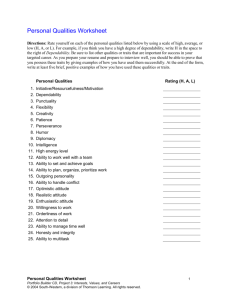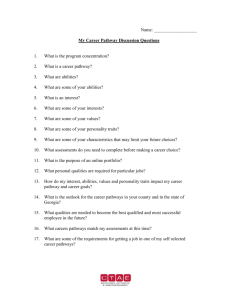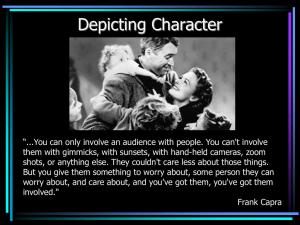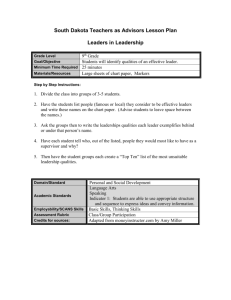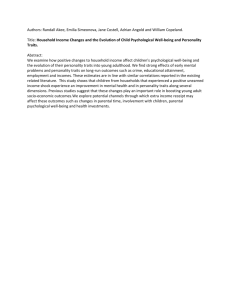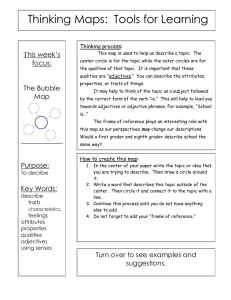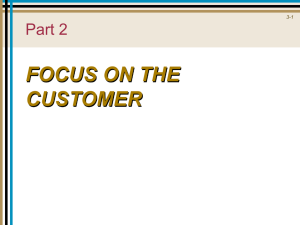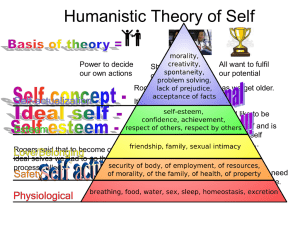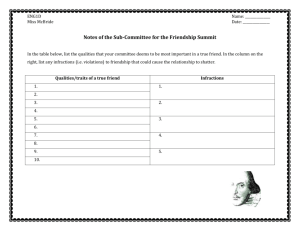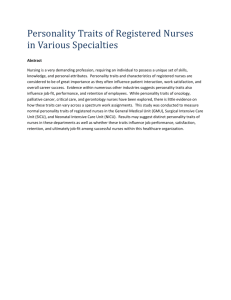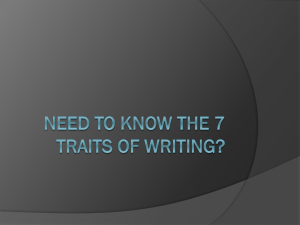Erich Fromm - PSYC DWEEB
advertisement
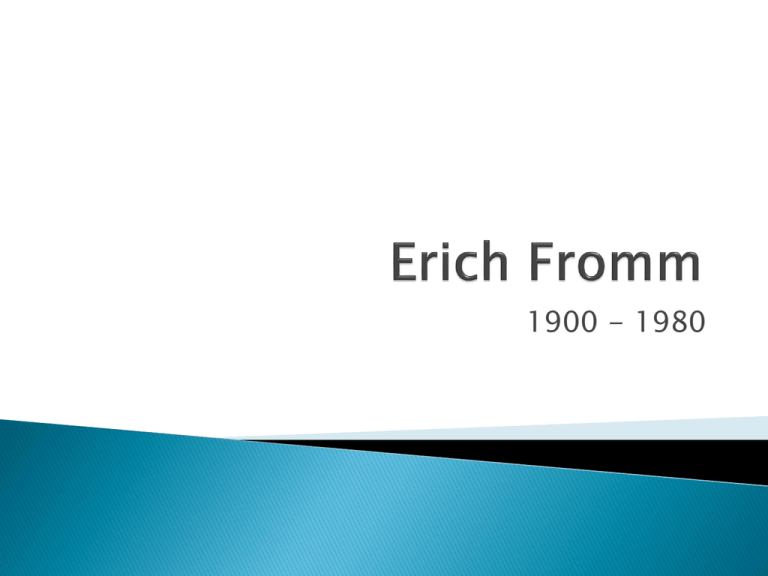
1900 - 1980 Born in Frankfurt, Germany A not too happy childhood Two significant events ◦ Suicide of parents friend ◦ WWI ◦ “My main interest was clearly mapped out. I wanted to understand the laws that govern the life of the individual man, and the laws of society” Studied psychology, sociology, and philosophy at the University of Heidelberg Married his first analyst, Frieda Reichmann In the 1930’s was writing critical articles disputing Freud’s refusal to admit the impact of socioeconomic forces on personality. Became “hated within the Freudian establishment with a special passion” Worked with Karen Horney for approx. 10 years Wrote around 50 books Died of a 4th heart attack in 1980 We have several basic existential needs: ◦ ◦ ◦ ◦ ◦ Relatedness (to others) Transcendence (purpose) Rootedness (to the world and nature) Sense of Identity (“I am I”) Frame of orientation As people have achieved more freedom, they have become more lonely, insignificant and alienated from nature(less freedom = greater connectedness) There are three psychic mechanisms for escaping the negative aspects of freedom Authoritarianism ◦ “the tendency to give up the independence of one’s own individual self and to fuse one’s self with someone or something outside oneself in order to acquire the strength which the individual is lacking” ◦ Can take two forms: Masochism (join oneself to something more powerful) Feelings of inferiority and inadequacy Compliant to others Sadism Strive for power over others Gain power over the weak by making them dependent on me Exploiting others for my benefit or pleasure Making others suffer physically or psychologically Destructiveness (Malignant Aggression) ◦ Does not depend on a continuous relationship with another but seeks to eliminate people or things from our lives (If it/they do not exist, I can’t be hurt) Nastiness of life attributed to this ◦ If blocked will be turned on self (If I do not exist, I can’t be hurt) Automation Conformity ◦ We give up our individuality to become whatever other people desire us to be ◦ Temporarily find security but at the price of the self The more we conform the more powerless we feel, the more powerless we feel the more we must conform ◦ Most socially significant Proposed both productive and nonproductive personality types (character orientations) ◦ Productive: healthy personality types Ideal state of human development ◦ Nonproductive: unhealthy Most personalities are a combination of types with one dominant Biophilous ◦ In love with life and are attracted to growth, creation, and construction ◦ Try to influence others by love, reason, and example Are concerned with the growth and development of self and others ◦ Extreme of this would be a saint Being ◦ Define self by what you are not by what you have ◦ Self worth comes from within not from comparing self to others ◦ Cooperate, love, and live productively with others Receptive type ◦ ◦ ◦ ◦ Can only relate to the world from things outside of themselves Expect to get whatever they want from others Receivers not givers Negative qualities: Passivity, submissiveness, and lack of self control ◦ Positive qualities: Loyalty, acceptance, and trust Exploitative type ◦ ◦ ◦ ◦ Relate to the world outside of themselves Aggressively take what they want from others What is taken is of greater value than what is given freely to them Negative qualities: Egocentric, conceited, arrogant, and seducing ◦ Positive qualities: Impulsive, proud, charming, and self-confident Hoarding type ◦ Security in hoarding and saving what they have already obtainted ◦ Compulsive orderliness about their possessions, thoughts and feelings ◦ Build walls around themselves and let little out ◦ Negative traits: Rigidity, sterility, obstinacy, compulsivity, lack of creativity ◦ Positive traits: Orderliness, cleanliness, puctuality Marketing type ◦ Our personality becomes a commodity to by sold ◦ Superficial qualities such as smiling, being agreeable, laughing at the boss’s jokes are more important than inner characteristics and abilities ◦ Are without a past or future, and have no permanent principles or values ◦ Somewhat connected to automation conformity ◦ Negative traits: Aimless, opportunistic, inconsistent, and wasteful ◦ Positive traits: Changeability, open-mindedness, adaptability, and generosity Having type ◦ ◦ ◦ ◦ Personal meaning comes from possessions “Keeping up with the Jones’s” “ The one who dies with the most toys wins!” Any society with a majority of these type people is a sick society Necrophilous type ◦ Attracted to death, corpses, decay, dirt, etc. ◦ Often hate humanity and are racists, warmongers, and bullies Not all are savages, but appear harmless and leave a wake of emotional destruction Their destructive behavior is a reflection of their basic character ◦ Dwell in the past and are cold and aloof ◦ Devoted to law and order Malignant Narcissism ◦ Perception of reality is impeded so that everything belonging to the narcissist is highly valued while everything belonging to others is devalued. Incestuous Symbiosis ◦ Inseparable and often intertwined with a host person or thing losing their individual identities Can be with a person, ideology, job, nation, etc. ◦ Feel extremely anxious or frightful if the symbiotic relationship is challenged ◦ Distorts an individuals reasoning powers, destroys the capacity for authentic love, and prevents people from achieving independence and integrity
